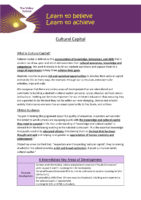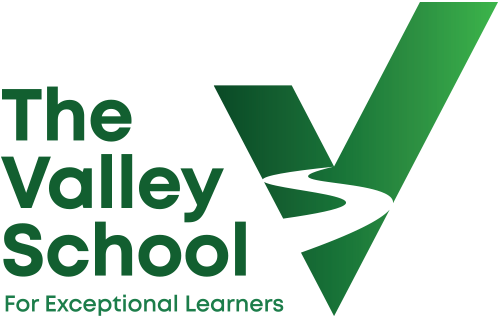Cultural capital is defined as the accumulation of knowledge, behaviours, and skills that a student can draw upon and which demonstrates their cultural awareness, knowledge and competence.
We work tirelessly to build our student aspirations and expose them to a range of experiences to help them achieve their goals.
Students need to be given rich and sustained opportunities to develop their cultural capital and we do this in many ways, for example, through our curriculum, extra-curricular activities, trips and visits.
We recognise that there are six key areas of development that are interrelated and contribute to building a student’s cultural capital: personal; social; physical; spiritual; moral; and cultural. Nothing can be more important for our children’s education than ensuring they are supported to be the best they can be within our ever changing, diverse and eclectic society that ensures everyone has an equal opportunity to live, learn, and achieve.
Ofsted Guidance
“As part of making the judgement about the quality of education, inspectors will consider the extent to which schools are equipping pupils with the knowledge and cultural capital they need to succeed in life. Our understanding of ‘knowledge and cultural capital’ is derived from the following wording in the national curriculum: ‘It is the essential knowledge that pupils need to be educated citizens, introducing them to the best that has been thought and said and helping to engender an appreciation of human creativity and achievement.’”
Ofsted has since clarified that: “Inspectors aren’t inspecting ‘cultural capital’; they’re looking at whether the school provides a rich and broad curriculum. A great curriculum builds cultural capital.”
6 Interrelated Key Areas of Development
Personal Development
- Careers and Information, advice and guidance provision (‘Youth Connexions’ visits in year 9 and 11, Learning for Life Curriculum);
- Personal Finance Education (Points, money and rewards system, Learning for Life Curriculum);
- Employability skills (Year 10 have vocational options) including work experience for selected pupils if appropriate;
- Learning for Life and RSE curriculum;
- The school’s wider pastoral framework (Growth mind-set, resilience development strategies such as PENN resilience training for staff);
- Transition support and induction;
- Work to develop confidence e.g. public speaking and interview skills (English curriculum and functional skills, vocational skills);
- Activities focused on building self-esteem;
- Mental Health & well-being provision (Interventions, Pupil Listener, Learning for Life Curriculum);
- Form Time and Learning for Life curriculum;
Social Development, including political and current affairs awareness
- Learning For Life and RSE curriculum;
- Form time;
- Student volunteering and charitable works (collections for the homeless, charity fundraising days);
- Student Council;
- Nurture Group Access (Interventions, Informal curriculum/Equals Curriculum);
- Access to counselling (Pupil Listener);
- In school and wider community engagement programmes (Sports Leader);
Physical Development
- Physical Education curriculum;
- Stevenage FC links and activities;
- Anti-bullying and safeguarding policies and strategies;
- The health, drugs, alcohol, smoking and sex and relationships and elements of the PHSEE curriculum; (Learning for Life curriculum, RSE curriculum and behaviour policy)
- Extra-curricular provision;
- Extra-curricular activities available for unstructured time, including lunch and break times;
- The extra-curricular programme relating to sports and well-being;
- Activity-based residential trips;
- Learning to ride a bike, cycling proficiency training and cycling to school safety protocol;
- Activities available for unstructured time, including lunch and break times;
- Food preparation and nutrition curriculum;
- Advice and Guidance to parents on all aspects of student lifestyle; (EHCP)
Spiritual Development
- The Religious Education/Ethics and Philosophy Curriculum;
- Our collective acts of worship and reflection;
- Support for the expression of individual faiths;
- Inter-faith and faith-specific activities (Humanities Curriculum);
- Visits to religious buildings and centres;
- Assembly programme – different festivals and beliefs;
Moral Development
- The Religious Education/Ethics and Philosophy Curriculum;
- Behaviour Management policies – STEPS;
- Contributions to local, national and international charitable projects (shoebox collections, clothes for the homeless, national charity events/days);
- Form time and Learning for Life curriculum;
Cultural development
- Access to the Arts (Arts Award);
- Access to other languages and cultures through the curriculum and trips and visits; (Humanities Curriculum, BSL/Makaton);
- Promotion of racial equality and community cohesion through the school’s ethos;
- Co-operative values;
- Signing choir (Makaton/BSL);
- Assembly programme;
- Form time and Learning for Life curriculum;




